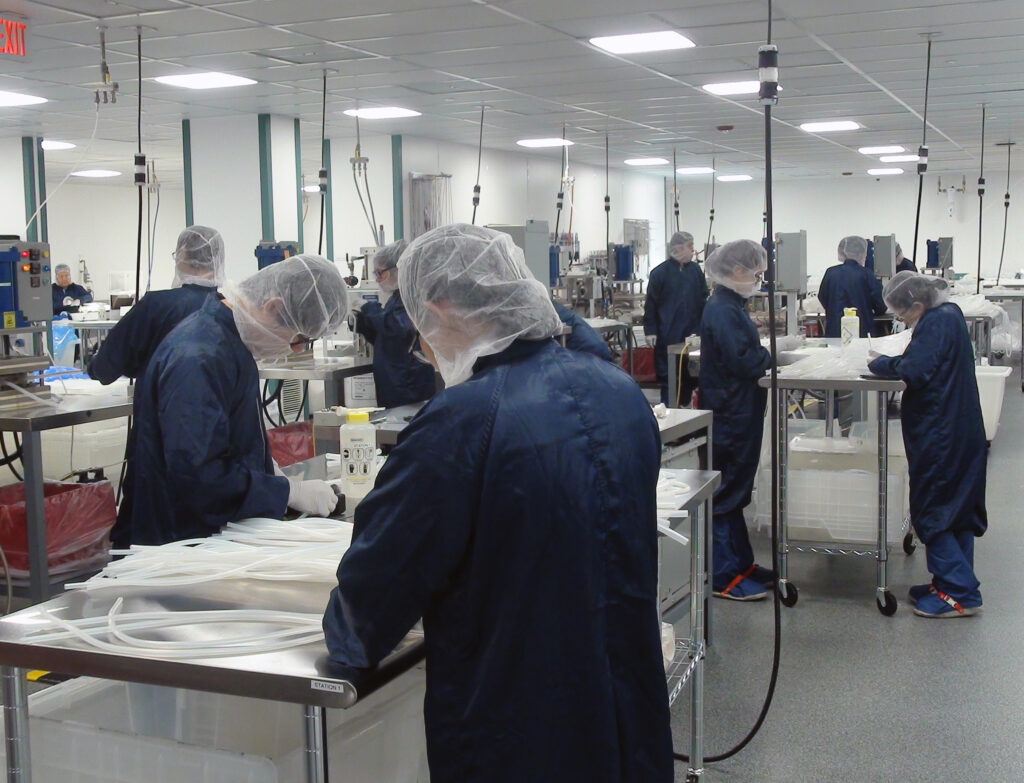“I learned a lot from my business,” says Pennsylvania employee ownership advocate Kevin McPhillips, who has spent two decades leading companies in the marketing and ecommerce spaces. “Every time we did something for employees, the business grew.”
Those worker-centric benefits included profit-sharing, year-end bonuses, incentive plans, and 100 percent 401(k) matches. Later, when McPhillips learned about employee stock ownership plans (ESOP), they were in line with his longtime values as a business leader.
Now he’s founding CEO and executive director of the Pennsylvania Center for Employee Ownership (PaCEO). The organization formed five years ago with one goal: raise awareness of the ESOP option in the Commonwealth.
Keystone Edge recently profiled Southampton’s New Age Industries. That manufacturer’s CEO, Ken Baker, completed a 100 percent ESOP transfer in 2019. He has teamed up with McPhillips and other Pennsylvania business leaders to spread the gospel.

ESOPs got their start in the U.S. back in 1974 when Congress passed a law that says owners can sell some or all of their business, at full market value, to their employees.
“The employees paying nothing, not even a penny,” explains McPhillips.
Instead, the business takes on a loan from a traditional source to pay for the shares that are delivered at no cost to the employees.
In Pennsylvania, ESOPs do not pay federal or state taxes on their profits, offering a big boost to the business — those dollars can go towards paying off that loan, in addition to infrastructure improvements, and better employee salaries and benefits. From the perspective of the IRS, those taxes are deferred, not eliminated: employees who retire or leave the company receive pre-tax cash for their shares, and pay taxes when they exercise the money.
Employees are happy because their efforts on the job translate directly to their own profits as owners, and the wider community benefits when “the business stays where it is, doesn’t get sucked up by private equity, stripped down, resold, or moved offshore,” adds McPhillips. And “surprise surprise, ESOPs are on average 12 percent more productive year over year than non-ESOPs.”
What’s really interesting and unique about employee ownership is that it’s a remarkable partnership between really good business and social impact.Kevin McPhillips, PaCEO
Especially in the engineering and manufacturing sectors, which boast a higher rate of ESOPs than other fields, the model is seen as an effective way to retain crucial talent.
McPhillips also cites a recent eight-year study from the National Center for Employee Ownership. The federal government estimates that ESOPs represent an annual economic boost of $8 billion dollars for two reasons: the reduction of layoffs and the creation of new jobs.
The biggest problem ESOP proponents face, McPhillips says, is that few people know about the model. Fortunately, it’s finally getting some attention at the national level. He points to a recently released study by Biden White House Council of Economic Advisors appointee Jared Bernstein.
“Education and awareness about private ESOP structures, both for owners and professional advisors, are the most frequent hurdles to ESOP creation,” Bernstein concluded.

That’s where PaCEO comes in.
“The purpose of the Pennsylvania center is quite simple,” explains McPhillips. “It does one thing: Raise awareness of this program. We don’t sell anything. We don’t charge anything for our services.”
Instead, working with business-world volunteers including attorneys and financial advisors, they offer presentations and other educational events to business groups, government, and economic development organizations, and chambers of commerce.
McPhillips emphasizes that, even today, ESOPs have a rare level of bipartisan political approval.
“What’s really interesting and unique about employee ownership is that it’s a remarkable partnership between really good business and social impact,” he says.
The Pennsylvania model works and it changes lives. We just need more people to be aware.Kevin McPhillips, PaCEO
A Philadelphia native who spent many years in the nonprofit realm, McPhillips is based in Havertown, PA. PaCEO has a Philly office, as well as a Western Pennsylvania hub at Pittsburgh’s Chatham University. Teaming with Mayor Bill Peduto, the Pittsburgh City Council, and the Carnegie Library, PaCEO created a database of 30,000 local business to target with their outreach. That programming, originally scheduled to begin last June, was put on hold due to the pandemic. They’re hopeful to launch later this year.

Similar work is underway in Philadelphia. PaCEO has been working with City Councilmember Derek Green for more than a year on a plan for ESOP outreach. The group is also strategizing in the city of Erie, and has formed a central Pennsylvania task force to target Harrisburg and York, Lancaster, and Dauphin counties.
Chances are you already know an ESOP company: They include the grocery chain Publix, New Belgium Beer and Dansko Shoes. Wawa and Sheetz are both partial ESOPs. Overall, there are about 5,500 ESOP companies in the United States, including 300 in Pennsylvania.
There’s clear evidence nationwide that state centers for employee ownership (overseen by the U.S. Department of Labor) boost the ESOP numbers in that state. According to McPhillips, before PaCEO got going, Pennsylvania ranked in the middle for ESOP numbers. Now, the latest data shows it second in the nation for new ESOPs, behind only California (which boasts three times our state’s population).
“This is working, what we’re doing,” he adds. “The Pennsylvania model works and it changes lives. We just need more people to be aware.”
ALAINA JOHNS is a Philadelphia-based freelance writer and the Editor-in-Chief of BroadStreetReview.com, Philly’s hub for arts, culture and commentary.
Lead image: A pre-pandemic meeting meeting at Governor Wolf’s Office.



